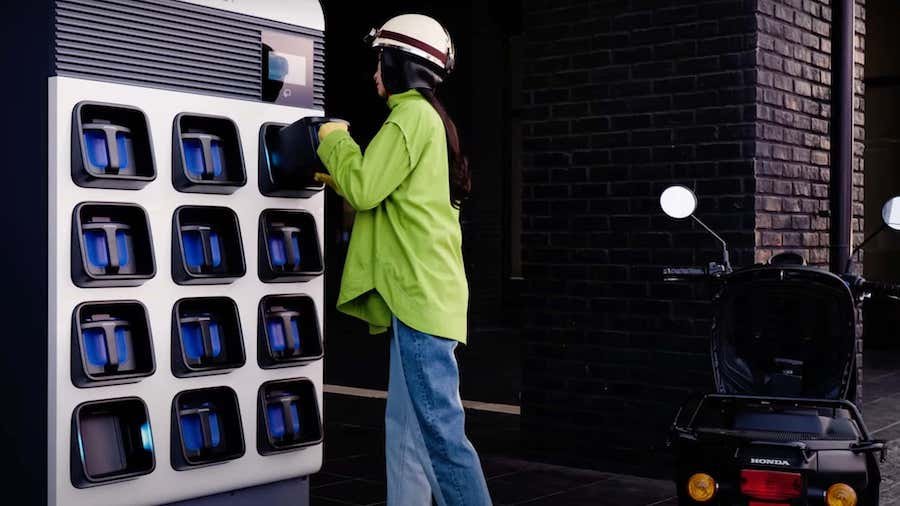Gachaco Announces Battery Sharing Trial Campaign In Tokyo

The big four Japanese motorcycle manufacturers are taking electrification very seriously. Apart from each of them working on their own respective projects, all four of them have teamed up to create a battery technology consortium in Japan. Gachaco, an organization focusing primarily on streamlining battery tech for consumers, was the result of this, along with a partnership with Japanese petroleum company Eneos.
In late 2022, Gachaco began setting up battery swapping facilities in Japan, with two Honda locations in the country. Fast forward to today, and the organization wants to accelerate its battery sharing program. Gachaco has just announced that it will be launching the “Gachaco Battery Sharing Experience Campaign” to optimize its battery swapping technology to make it as seamless and user-friendly as possible. The company hopes to roll out the battery sharing service to the public by 2024.
Under the Gachaco Battery Sharing Experience Campaign, a total of 30 participants will be selected, and will make use of the newest Honda electric mopeds, the EM1 e: and Benly e: throughout the duration of the event. The mopeds will be leased free of charge, but participants will have to pay for the services being used. The trial campaign is limited to the Tokyo area, and participants must be able to pay with a credit card. Participants will receive a special gift card at the end of the campaign.
Gachaco offers its battery sharing platform at a very affordable rate of just 300 Yen per month, or about $2 USD. The kicker here is that users are charged a fee on top of that corresponding to their specific usage. Gachaco has set this at 300 yen (about $2 USD) per kilowatt-hour, with the battery fee included in the pricing structure. The trial campaign is expected to start in late October, and conclude in November, 2023.
Battery swapping has long been the main candidate when it comes to eliminating range anxiety with electric vehicles. It can be done about as quickly as it takes to refill a fuel tank, and provided that the batteries are built to certain standards, can be made applicable to a wide range of vehicles. Of course, it requires much more specialized technology and infrastructure when compared to charging stations alone, as there needs to be a place to house and charge batteries when not in use, as well as security measures to ensure batteries aren’t tampered with or stolen.
Related News


